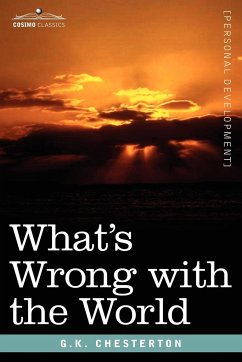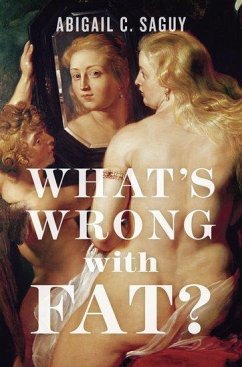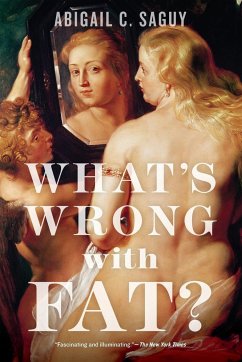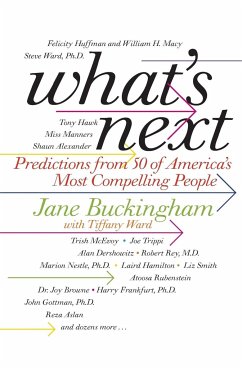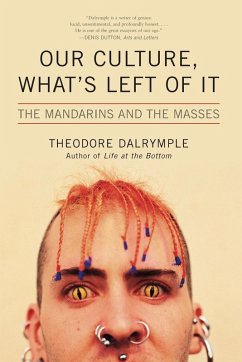
What's Wrong with the World
Versandkostenfrei!
Versandfertig in 1-2 Wochen
13,99 €
inkl. MwSt.

PAYBACK Punkte
7 °P sammeln!
A visionary in his day, G. K. Chesterton somehow foresaw the brewing ideological storms surrounding totalitarianism, social progressivism, and the woman's suffrage movements. As evidenced by his writings, Chesterton also foresaw the eventuality of a more intrusive government. It this classic book first published in 1910, Chesterton examines the above threats to a decent, stable, ordinary life. His uncanny insights, made ten years before his conversion to Catholicism, are still unmistakably influence by Catholic teachings on the false emphasis on "science," sexual license as "liberating," socia...
A visionary in his day, G. K. Chesterton somehow foresaw the brewing ideological storms surrounding totalitarianism, social progressivism, and the woman's suffrage movements. As evidenced by his writings, Chesterton also foresaw the eventuality of a more intrusive government. It this classic book first published in 1910, Chesterton examines the above threats to a decent, stable, ordinary life. His uncanny insights, made ten years before his conversion to Catholicism, are still unmistakably influence by Catholic teachings on the false emphasis on "science," sexual license as "liberating," socialism's fake humanity, and how "faith in the future" is actually a sign of cowardice and fear of our past. As readable today as when it was first written, Chesterton's work remains an incisive analysis of what is truly wrong with our world.





